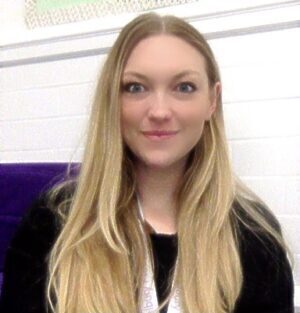On this week’s episode of the Women Leaders series, I am speaking with Danielle Smith, a walking champion for mental health and wellbeing. We discuss her journey in leadership, being an empathetic leader, and she shares her passion for mental health and why it is so important for staff to develop an understanding of how it can impact a child’s ability to learn.
But now I almost feel quite overwhelmed with how much I have progressed and that was only a few years ago.

Danielle Smith
Mental Health & Wellbeing Assistant Headteacher
Danielle Smith is currently an Assistant Headteacher for mental health and wellbeing at a large primary school in North London. She is responsible for leading PSHE within the school and has implemented many exciting and positive changes such as regular yoga and mindfulness sessions, as well as designing and launching a new curriculum.
Outside of school, Danielle is a qualified children’s yoga instructor and has also completed courses in mindfulness for children. Alongside her role within the school, she is also currently studying for her Masters in Child and Adolescent Mental Health and looks forward to applying this knowledge and skill set to her future endeavours.
Follow Danielle on:
Resources
Book: Why Love Matters by Sue Gerhardt
Have you left a review for Voicing Education – The Podcast?
Each and every review really does make a difference. If you are enjoying the episodes, I’d just like to ask for you to share your appreciation.
Please leave a review:
- Head to voicingeducation-thepodcast/apple or search Voicing Education – The Podcast in Apple Podcasts. (This is easier to do on your phone.)
- Scroll down and click the 5-star rating.
- To show extra appreciation and support – please add a quick sentence (or two) to share what you enjoy about the show.


Hi Kay,
Congratulations on launching your podcast! I love it!
Thanks Fiona. I am just seeing these comments and responding. The second series is coming soon.